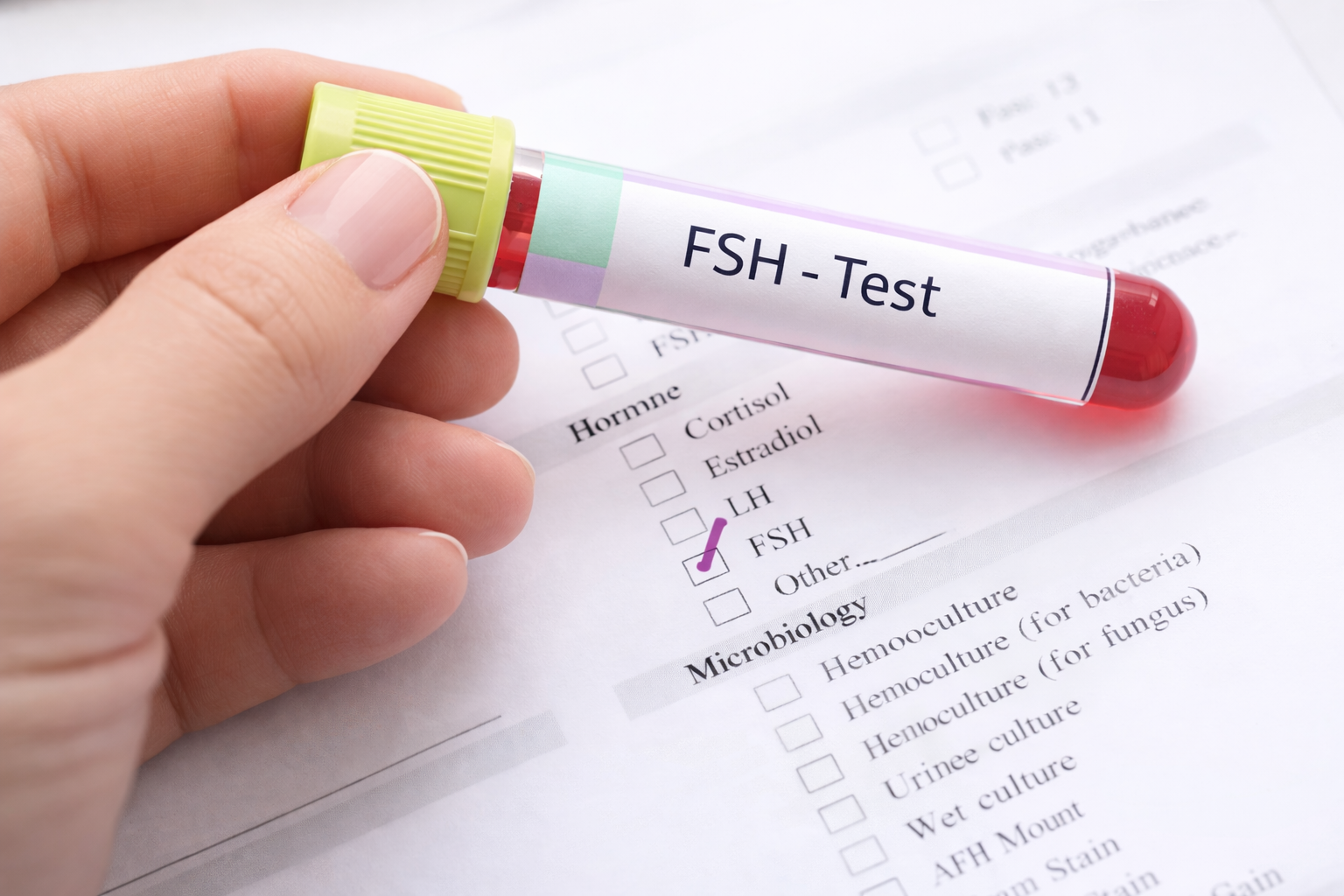Well… yes and no. Some forms of birth control do stop ovulation, but others do not. Here are the signs of ovulation on birth control, and why whether or not you ovulate on birth control matters.

Well… yes and no. Some forms of birth control do stop ovulation, but others do not. Here are the signs of ovulation on birth control, and why whether or not you ovulate on birth control matters.
Ovulation, or the process by which an egg travels down the fallopian tubes, is essential to track if you’re trying to conceive: in order to get pregnant, you need to ensure that your insemination process targets that fertile window. Yet not everyone is trying to conceive—so why should ovulation matter to you if you’re not trying?
When you’re on hormonal birth control, you may still get a period, or you might stop getting your period altogether. But does birth control stop ovulation? Whether you’re getting a period or not, it’s still possible that you’re ovulating. Here are some signs of ovulation while on birth control and why you should care.
We'll cover:
- How are birth control and ovulation connected?
- How different types of hormonal birth control affect ovulation
- Signs of ovulation while on birth control
- How does changing or stopping my birth control affect ovulation?
- Why does it matter if you’re ovulating while on birth control?
How are birth control and ovulation connected?
The body is triggered to release an egg when it senses a dramatic change in hormonal levels. Most hormonal birth control methods use hormones to regulate or modify the process of ovulation, so you know when to have sex in order to safely avoid pregnancy.
There are two categories of hormonal birth control: combination drugs, and progestin-based drugs.
Combination birth control methods contain both estrogen and progestin and effectively stop ovulation. Creating a steady stream of estrogen and progesterone works to prevent ovulation by blocking the creation of follicle-stimulating hormone (FSH) and luteinizing hormone (LH), which both need to be present for ovulation to begin.
Solely progestin-based birth control, on the other hand, may stop ovulation—but it’s not always guaranteed.
What about non-hormonal birth control?
Non-hormonal birth control, like condoms and diaphragms, do not alter the hormone levels within your body, which means that they’re unable to stop ovulation.
How different types of hormonal birth control affect ovulation
Does birth control stop ovulation? Only hormonal birth control can stop ovulation, but it depends on the type of hormonal birth control you have.
The combo birth control pill
The birth control pill works by flooding your body with estrogen and progestin on days when you’re not meant to menstruate. Some pill options give you a week of placebo pills that then allow your period to come. Most birth control pills are combination drugs, so they prevent you from ovulating at all.
The mini pill
The mini pill is a progestin-based pill. It is usually prescribed for people who have recently given birth or with a history of blood clots—the lack of estrogen in these pills can make them a safer option for those populations—and usually, you continue to get your period on the mini pill. Because it is progestin-based, the mini pill also allows you to ovulate sometimes.
Hormonal IUDs
IUDs are T-shaped implants that are inserted into your uterus and can last up to seven years. The copper IUD has no hormones in it, but all other options, including the Skyla, the Mirena, the Kyleena, and the Liletta, release a small amount of progestin into your system gradually over the course of years. With hormonal IUDs, you might still get periods, but they’re usually lighter, and often you’ll stop getting them entirely; since they only contain progestin, hormonal IUDs only end up blocking ovulation some of the time.
Nexplanon
Nexplanon, also known as the birth control implant, is a matchstick-sized plastic bar that gets inserted into your arm and emits small amounts of progestin. About one in five people using Nexplanon stop getting their periods, according to VeryWell Health. Most people do not ovulate with Nexplanon.
NuvaRing
The NuvaRing, or the birth control ring, is a bendy circle that you insert into your vagina. The NuvaRing has enough hormones in it to last up to five weeks, at which point you can choose to have a period by not wearing a ring for seven days, or you can skip your period by trading out NuvaRings immediately. The NuvaRing is a combination birth control, so it will stop you from ovulating no matter if you choose to have a monthly period or not.
Signs of ovulation while on birth control
If you’re using a type of hormonal birth control that may or may not stop ovulation, how can you tell if you’re ovulating?
The signs of ovulation while on birth control include typical signs of ovulation, like cervical mucus, increase in basal body temperature, bloating, abdominal pain, breast pain, and mood changes.
However, these symptoms might not always be surefire indicators that you’re ovulating—they might even be side effects of the birth control you’re on.
How does changing or stopping my birth control affect ovulation?
Because of their hormonal nature, some of these forms of birth control will have lingering effects after you stop using them. This means that ovulation may take a while to restart and you may need to wait a few weeks after stopping or removing your birth control method for natural ovulation to resume.
When you get off of birth control pills, ovulation should resume almost immediately. For longer-lasting forms of birth control like the hormonal IUD, the NuvaRing, and Nexplanon, fertility may take up to a few months to return.
>>MORE: What Are Signs of Ovulation After Stopping the Pill?
Why does it matter if you’re ovulating while on birth control?
So, why should you care if birth control affects your ovulation? The answer to whether your ovulation status matters depends on what angle you’re coming from.
If you’re on birth control simply to avoid getting pregnant, then whether or not you’re ovulating might not make a difference to you—if your birth control method is effective, then you don’t necessarily need to worry about your fertile window.
However, people go on birth control for all sorts of different reasons, not just in order to prevent pregnancy. You might be on birth control to take charge of your hormone levels, to help alleviate horrible period pain, or even to help with extreme acne. In these cases, knowing whether or not you’re ovulating can actually be really important, because the symptoms of your cycle will sync up with the stages.
The takeaway
Maybe knowing how the different options affect your ovulation will help you choose the best birth control option for you; maybe it will help you navigate fertility post-birth control. At the very least, knowing whether or not you’re ovulating will give you more insights into the cycles of your own body—and that’s worth understanding.
About the author

Sources
About the Oova Blog:
Our content is developed with a commitment to high editorial standards and reliability. We prioritize referencing reputable sources and sharing where our insights come from. The Oova Blog is intended for informational purposes only and is never a substitute for professional medical advice. Always consult a healthcare provider before making any health decisions.



